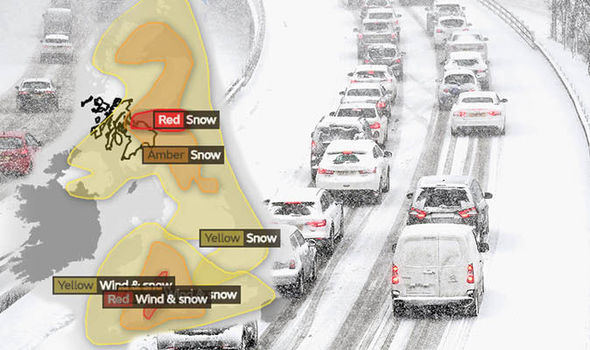Travel disruption and bad weather
Travel disruption and bad weather can delay or prevent workers getting to work. It can also mean employers need to adapt working arrangements or close workplaces.
- Paying delayed or absent workers.
- Paying workers when an employer decides to close.
- Alternative arrangements for disrupted work.
- School closures and other unexpected issues.
- Working temperatures during bad weather.
- Planning ahead to minimise difficulties.
Paying delayed or absent employees
If a worker cannot get to work because of bad weather or travel disruption they must inform their employer of this as soon as possible.
There is no automatic legal right for a worker to be paid for working time they have missed because of travel disruption or bad weather.
If employer-provided transport is cancelled because of bad weather or travel disruption, and a worker was otherwise ready, willing and available to work, the worker should be paid for any working time they have missed.
Some contracts and workplace policies may have special arrangements covering this kind of situation. This might include pay arrangements. Some employers might also make discretionary, informal arrangements.
Paying workers when an employer decides to close
Workers who were ready, available and willing to work will usually be entitled to their normal pay:
- if their employer fully or partly closes their business
- if their employer reduces their hours
- if other essential staff such as line managers are unable to get into work
- if staff who provide access to the building are unable to get into work.
Some contracts and workplace policies will say what workers need to do in special circumstances like these. This might include things like working at the nearest accessible workplace, doing other duties or working from home.
Some contracts may allow employers to ‘lay off’ some staff without pay. However, it must be completely clear how the circumstances apply and anyone with employee status will usually have a right to a statutory guarantee payment. For more information see Lay offs.
Alternative arrangements for disrupted work
Different employers will have different business needs during travel disruption and bad weather.
Whatever options are decided on, an employer should keep in communication with their workers and be flexible, fair and consistent.
Alternative options include.
- Allow workers to come in a little later than usual if the travel disruption or weather is expected to improve.
- Use flexible working to let workers make up any lost working time.
- Offer workers who can get in to work the chance to swap shifts or work overtime.
- Use homeworking for a temporary period.
- Switch to duties that can still be carried out.
- Agree for workers to take time off as paid annual leave.
School closures and other unexpected issues
In an emergency situation involving a dependent, anyone with employee status has the right to take unpaid time off.
Situations could include:
- school is closed and a worker cannot leave their child
- caring arrangements for a disabled relative are cancelled
- a partner is seriously injured as a result of bad weather.
This time is unpaid unless a contract or policy says otherwise.
An employee should talk to their employer as soon as they know that they may need to take time off, explaining:
- exactly what the issue is
- the likely length of the absence
- that they are taking the time off to look after dependants.
An employer and employee could agree that this time off be taken as annual leave so the employee does not miss out on pay.
Anyone with worker status will need to come to an arrangement with their employer.
Working temperatures during bad weather
If low temperatures make it unsafe for workers to carry out their roles then the employer should address this.
An employer should consider whether they can:
- relax their dress code to enable staff to wear warmer clothing
- allow extra breaks to make hot drinks
- bring in extra heating options such as portable heaters.
An employer should take extra care for vulnerable workers, such as pregnant workers. If a risk cannot be avoided or removed some workers may have to be sent home to protect their health, usually on full pay.
For more information, go to our page on Working temperature.
Planning ahead to minimise difficulties
An employer can provide clarity to employees and help prevent confusion by planning ahead with a bad weather or travel disruption policy. It should include:
- contact arrangements
- alternative arrangements
- what will happen with pay if the employee is unable to work.
A worker can also take steps to plan ahead. They should consider:
- how they can contact their employer if they are unable to get into work
- alternative travel options that could get them into the workplace
- if they can work flexible hours for a period of time
- what tasks they may still be able to do from home
- what urgent work needs covering if they are unable to work
- what arrangements could be put in place for child care if schools close.
Information provided by ACAS

